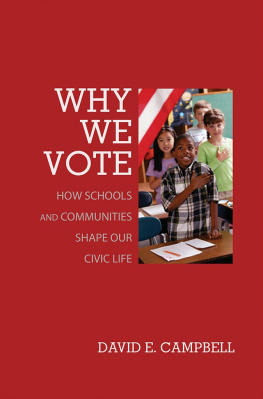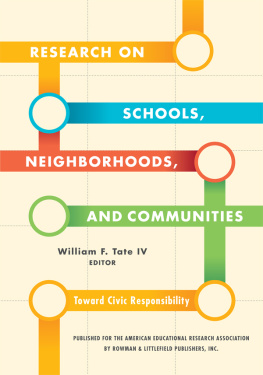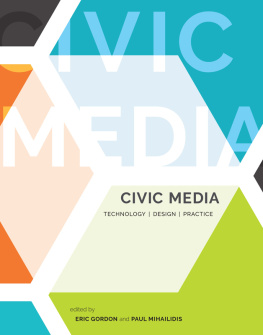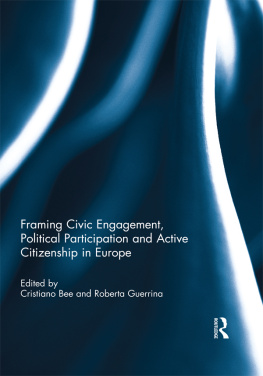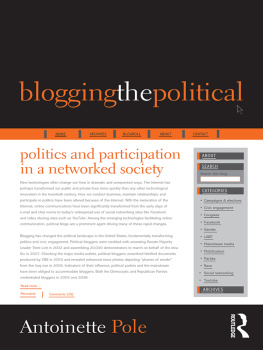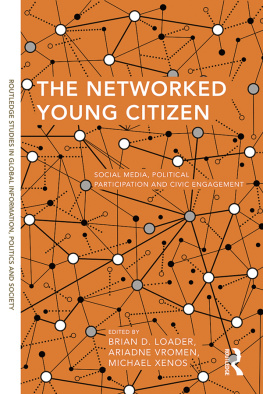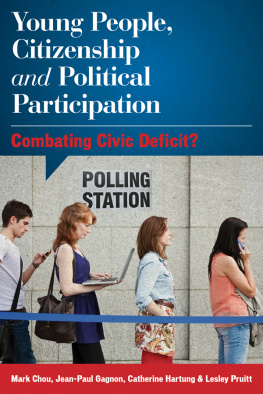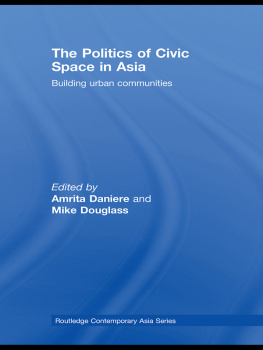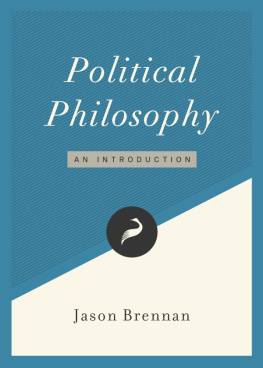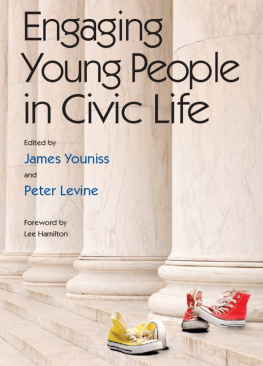Why We Vote
Why We Vote
HOW SCHOOLS AND COMMUNITIES SHAPE OUR CIVIC LIFE
David E. Campbell
PRINCETON UNIVERSITY PRESS PRINCETON AND OXFORD
Copyright 2006 by Princeton University Press
Published by Princeton University Press, 41 William Street, Princeton, New Jersey 08540
In the United Kingdom: Princeton University Press, 6 Oxford Street, Woodstock, Oxfordshire OX20 1TW
All Rights Reserved
Campbell, David E., 1971
Why we vote : how schools and communities shape our civic life / David E. Campbell.
p. cm.
Includes bibliographical references and index.
ISBN-13: 978-0-691-12525-1 (hardcover : alk. paper)
ISBN-10: 0-691-12525-2 (hardcover : alk. paper)
1. Political participation. 2. Community development. 3. Social exchange. 4. Voluntarism. I. Title.
JF799.C35 2006
323.042dc22 2005032902
press.princeton.edu
eISBN: 978-1-400-83761-8
R0
To Kirsten, Katie, and Soren
Who form my most important community
Figures
Tables
Acknowledgments
IT IS APPROPRIATE that in writing a book about how communities affect us, I have been supported by many people in different, but often overlapping, communities. This book began as a doctoral dissertation, which was guided by the members of my dissertation committee: Andrea Campbell, Paul Peterson, Bob Putnam, Kay Schlozman, and Sid Verba. They saw this project grow from a half-baked idea to the book you now hold in your hands. I am grateful for their insights along the way. In particular, I have benefited from the wisdom of Bob Putnam. His formal title is chair of my dissertation committee, but that hardly captures the many ways he has shaped my scholarship. Bobs fingerprints are all over this book, sometimes in places where I initially did not even recognize his influence.
At various stages of this project, I have benefited from the generous financial support of a number of organizations. The genesis of this project came during the time I spent, at Paul Petersons invitation, as a research fellow with Harvard Universitys Program on Education Policy and Governance (PEPG). In ways both obvious and not, my fellowship at PEPG served to hone my research skills and catalyze my thinking about the relationships among communities, schools, and civic engagement. I have learned much from working with Paul, as he taught me that good scholarship can have a public face. After PEPG, I was fortunate to spend a year as a visiting fellow at Princeton Universitys Center for the Study of Democratic Politics. Nowhere else were my ideas challenged more rigorously, leading me to sharpen my arguments and evidence. Larry Bartels, Chris Achen, and Marc Hetherington were especially helpful during my year at Princeton. Finally, I completed the book during a postdoctoral fellowship with the National Academy of Education, funded by the Spencer Foundation. Thanks are also due to the University of Notre Dames political science department, which has been a welcoming and supportive environment for a young scholar. Other financial support has been provided by the Center for American Political Studies (CAPS) and the Saguaro Seminar: Civic Engagement in America (both at Harvard), as well as Notre Dames Institute for Scholarship in the Liberal Arts. Excellent research assistance was provided by Jacqueline Wilson and Jacqueline Genesio.
I have also received the intellectual support of friends and colleagues as they have offered their feedback, criticisms, and suggestions. These include Peri Arnold, Ben Deufel, Bill Galston, Jim Gimpel, Kristin Goss, John Griffin, Rodney Hero, Bert Johnson, Andy Karch, Scott McClurg, Wendy Rahn, John Roos, Theda Skocpol, Rob Van Houweling, Marty West, and Christina Wolbrecht. Although I did not always take their advice, their input was invaluable. Of course, they are not to be held responsible for any oversights on my part.
Portions of this book have been presented at annual meetings of the American Political Science Association and the Midwest Political Science Association, as well as at Notre Dames Program in American Democracy, the University of Minnesota, Harvard University, and Princeton University.
While there is no doubt that I have benefited from all of the above, the greatest support of all has come from within the walls of my home. My children, Katie and Soren, consistently teach me what it really means to be a good citizen, as does my wife, Kirsten. In fact, you could say that this book was inspired by her. She joins, she votes, and she volunteers (in fact, she was once even in a bowling league!). But more important, her unwavering faith in me has been an inspiration at every step of the wayeven in the face of all my threats to just give up and go to law school.
Why We Vote
CHAPTER ONE
Introduction: Voting Alone
ON SEPTEMBER 26, 1989, Traci Hodgson cast her ballot in Bostons City Council election. It was the only vote cast in her precinct. For a number of reasons, the political science literature predicts that Traci should have been like the other 275 registrants in her precinct and not turned out to vote. She was only twenty-one, she had lived in Boston for less than two months, and she admitted that she was not very familiar with the candidates running. So why did she vote? When asked she replied, I just think its important to vote. If you have the right, you ought to exercise itwhether you are going to make a difference or not (Mooney 1989).
This book is about why Traci voted, and why she voted alone.
MADISON AND TOCQUEVILLE: A TALE OF TWO MOTIVATIONS
Our starting point in answering this question is not what did motivate Traci, but rather what did not. Clearly she did not vote to protect or advance her interests, as she admitted that she did not know enough about the candidates to select them on the basis of who best represented her. To someone with only a cursory familiarity with the study of American politics this may seem difficult to explain, as politics is typically described as a forum for the clash of interests. Equating politics with conflict underpins much of the political science literature and is an assumption shared by scholars working within many theoretical frameworks. I recall an introductory political science course in which a professor defined politics as the scarcity of consensus. In 1960, E. E. Schattschneider wrote simply, At the root of all politics is the universal language of conflict (2). Forty years later, Morris Fiorina and Paul Peterson note matter-of-factly in their introductory textbook on American politics that politics is fundamentally about conflict (1998, xvi). For all the ink spilled by contemporary political scientists, however, no one has ever expressed this way of understanding politics better than James Madison in Federalist 10. Madison writes compellingly of how the latent causes of faction are thus sown in the nature of man, and that the most frivolous and fanciful distinctions have been sufficient to kindle their unfriendly passions and excite their most violent conflicts (1961, 79).
It does not seem, however, that Traci had her passions kindled as Madison describes. Instead, by her own account she was motivated by the glowing embers of obligation. She felt that she ought to vote, that it was her duty.
In invoking a sense of duty as a motivation to vote, Traci highlights a second, if more subtle, theme in both contemporary and classic writings on political engagement. If, in Federalist 10, Madison has written the quintessential statement on political participation as protecting ones interests, then perhaps Tocqueville has written an equally quintessential description of political participation as driven by fulfilling ones duty. In

